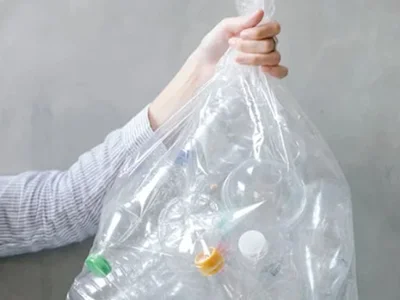The Best Guide To Reclaim Waste
The Best Guide To Reclaim Waste
Blog Article
The Reclaim Waste Ideas
Table of ContentsThe Main Principles Of Reclaim Waste What Does Reclaim Waste Mean?The Facts About Reclaim Waste RevealedThe Ultimate Guide To Reclaim WasteThe 4-Minute Rule for Reclaim Waste
Discover the kinds, incidents, and types of liquid waste. Residential sewer waste refers to the waste and products from a residential septic system. This kind of waste is created by humans in houses, institutions, and various other structures. This only consists of sewage-disposal tanks that have a drain field. The appropriate monitoring and disposal of domestic sewer waste require liquid waste to be moved to a sewage therapy plant where the proper methods and equipment are applied to cleanse and take care of waste.
Industrial waste often consists of prospective dangers, such as flammable products or a mix of fluid and solid waste products, and calls for a more sophisticated and detailed disposal process. The disposal of commercial waste typically includes the filtering of waste before transport to guarantee risk-free and correct disposal. Hazardous waste is developed from by-products and drainage of industrial procedures and manufacturing.
This sort of waste can not make use of the same sewer administration transport or processes as septic or business fluids. The hazardous waste monitoring process calls for the examination and screening of liquid waste prior to it undertakes the disposal process (liquid waste removal melbourne). Drainage waste is the liquid waste that comes from drainage and excess stormwater in highly inhabited areas or cities
Runoff waste can trigger contamination and flooding if not taken care of effectively. Guaranteeing appropriate waste monitoring can avoid disasters and lower environmental damage.
Getting The Reclaim Waste To Work
Get in touch with PROS Solutions today to discover our waste administration and disposal solutions and the correct methods to take care of the liquid waste you produce.
(https://giphy.com/channel/reclaimwaste1)This so-called 'wastewater' is not only a vital resource yet, after therapy, will certainly be released to our land, rivers or the ocean. Made use of water from toilets, showers, bathrooms, cooking area sinks, washings and commercial procedures is recognized as wastewater.

water made use of to cool down machinery or clean plant and devices). Stormwater, a type of wastewater, is drainage that flows from farming and city areas such as roofs, parks, yards, roadways, paths and gutters into stormwater drains pipes, after rain. Stormwater flows without treatment directly to neighborhood creeks or rivers, eventually reaching the ocean.
Some Ideas on Reclaim Waste You Should Know
In Queensland, many wastewater is treated at sewage therapy plants. Wastewater is transferred from residential or industrial websites with a system of sewage systems and pump terminals, understood as sewage reticulation, to a sewage treatment plant. Regional federal governments develop, maintain and operate most sewage treatment plants. Operators are certified under the Environmental Security Act 1994 to discharge treated wastewater at an acceptable environmental requirement into rivers.
The Division of Natural Resources suggests city governments concerning handling, operating and keeping sewage systems and treatment plants. In unsewered areas, neighborhood governments might need owners to mount specific or house sewage treatment systems to deal with residential wastewater from toilets, cooking areas, shower rooms and laundries. The Department of Natural Resources authorizes using home systems when they are proven to be reliable.
A lot of stormwater gets no treatment. In some brand-new class, treatment of some stormwater to remove litter, sand and gravel has actually started making use of gross toxin catches. Wastewater therapy takes place in 4 phases: Gets rid of strong matter. Larger solids, such as plastics and other items mistakenly released to sewage systems, are removed when wastewater is travelled through displays.
Makes use of tiny living microorganisms knows as micro-organisms to break down and get rid of staying liquified wastes and fine bits. Micro-organisms and wastes are included in the sludge.
Reclaim Waste Things To Know Before You Get This
Nutrient removal is not offered in any way sewer treatment plants because it needs costly specialized equipment. It is ending up being more usual in Queensland. Clear liquid effluent produced after therapy might home still include disease-causing micro-organisms. If this effluent is released right into rivers such as rivers or the sea, the micro-organisms will at some point pass away out.

This typically means wastewater needs to be dealt with or impurities removed before it can be released to waterways. Most wastewater streams right into the sewerage system. Under the Act, city governments administer approvals and licences for environmentally pertinent tasks (ERAs) entailing wastewater launches that might have a neighborhood influence. The department provides authorizations and licences to Ages entailing wastewater releases that may have a local or statewide impact.
More About Reclaim Waste
Otherwise, examples are considered lab analysis. Usually several tests are needed to develop the degrees of each of the various toxins such as oils, heavy metals and pesticides in water. Tracking supplies accurate details concerning water quality and can validate that licence conditions are being met. The information obtained with tracking supplies the basis for making water high quality choices.
Report this page